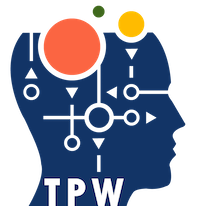Recently I started a discussion on LinkedIn some psychometrics related groups to get people`s opinions about why they attended psychometric testing certification programs. I received more direct messages than replies to the posts. Most people who wrote to me talked about the ‘GAME’ of psychometric testing companies to force them to go for certification. Some also talked about their ‘NEED’ to learn more about the tests they are using or plan to use. This discussion on Linkedin prompted me to write this article to share my thoughts on this issue and share the messages I received from my professional network. The objective of this article is to list of the need for psychometric testing certification, the value it adds and, at the same time, let the readers know about the game that is played in the name of certification.
The NEED for Psychometric Testing Certification
Psychometric Tests are complex measurement instruments. They are, in fact, more complex than many instruments we see around us like thermometer, weighting scale, blood pressure monitor etc. A large part of this complexity comes from the fact that they measure things which can not be objectively verified – how would you objectively verify ‘Conscientiousness’? The attributes measured by Psychometric Tests are abstract and conceptual rather than being concrete and physical. They are more of ‘inferred’ than ‘observed’. Since these tests are supposed to measure intangible things, they rely on multiple statistical approximations and inferences to provide a ‘measurement’. Most test users do not realise the complexity of the tools they are using. This happens because around us we have so many questionnaires and we are so much used to them. Most psychometric tests are essentially questionnaires that are well thought off, designed and assembled, but, not all questionnaire are psychometric tests.
When you deal with a complex instrument, like psychometric tests, you need to have requisite KSA (Knowledge, Skills and Abilities) to use them effectively. If you are riding a bicycle, you do not need a license in most countries but if you are driving a motor-bike, you need to get training and get a license. When you have opened a shop to measure weight of people and give them a ticket with their weight written on it, you do not need a license. On the contrary, if you are doing blood test, you need a license. Similarity, when you are doing aptitude testing, IQ testing, EQ testing, Personality Testing etc. you need to have the required KSA, and in some countries, you need a license. In other countries, including India, the governments are not aware about the vast implication of psychometric testing in their people`s life and have not mandated psychometric testing certification.
As we see here, there are 2 aspects of it — one, the acquisition of skills for which no license is needed and two, practicing those skills in public for which depending upon your country you might or might not need license.
License or not, you need to have required skills, and someone other than you, should given the testimony that you posses those skills if you plan to use them for others. Psychometric testing certification is beneficial in that sense as it gives you the require knowledge, skills and ability to use psychometric tests in proper manner while adhering to professional standards.
The GAME
Continuing with the previous examples, here are few more questions. Do you need to learn new set of skills for driving your car when you change country? Do you need to have different set of skills when you are doing blood test in India than when you are doing that in Kenya or in USA? Do you need to have new license when you change countries? Do you need a new license when you change your car?
In my opinion, when one has acquired skills in a kind of psychometric instrument e.g. Ability Tests or Personality Tests, the person should be able to use (administer and interpret) ALL tests falling into that category. Which means that there is no need for re-training as all tests of a particular category are based on the same concept and use same statistical technique of approximation and inference.
In the case of Psychometric Tests, the situation is not as clear as the car example as two tests belonging to the same group of tests might have very different set of underlying constructs that they are measuring and probably that is the reason many test publisher either ask the test user to get mandatory training in their tools from ground up or opt for a conversion course. And this is where it becomes a kind of abusive GAME. Some test publishers, given their dominance in the market, ask even the qualified users to go for a fresh course to use their test. Although being the author or IP owner of the tests they have all the rights to set conditions for who can and who can not use their tests but from a professional standpoint, this is a malpractice.
What is your opinion about this subject and what has been your experience with Certifications in the area of psychometric testing?
About the author
Vijai Pandey is an expert in psychometric testing. He is developing tests and training people about it since 2004. He has been consultant to Saudi Government on Psychometric Testing. He is a master facilitator in IIBP accredited psychometric testing certification programmes.
